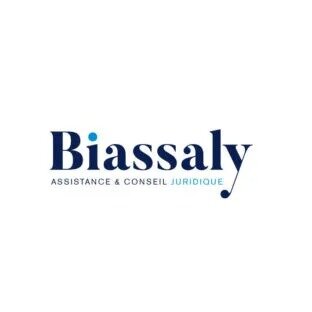Best Employment Benefits & Executive Compensation Lawyers in Gabon
Share your needs with us, get contacted by law firms.
Free. Takes 2 min.
Or refine your search by selecting a city:
List of the best lawyers in Gabon
About Employment Benefits & Executive Compensation Law in Gabon
Employment benefits and executive compensation in Gabon encompass the regulations and practices related to the remuneration and incentives provided to employees, particularly at the executive level. This typically includes wages, bonuses, pensions, health benefits, and other forms of compensation. The goal of these laws is to ensure fair treatment of employees, compliance with labor standards, and to make Gabon an attractive destination for skilled professionals and businesses. The combination of legal obligations and corporate policy often shapes how these benefits are structured and administered.
Why You May Need a Lawyer
Legal assistance in the field of employment benefits and executive compensation may be required for several reasons. Whether you are an employee or an employer, understanding your rights and obligations is crucial. Common situations where legal advice might be necessary include:
- Negotiating employment contracts that include complex compensation packages
- Ensuring compliance with local labor laws and regulations
- Handling disputes related to unfair dismissal or compensation issues
- Navigating the intricacies of pension and retirement benefit schemes
- Addressing cross-border employment and compensation issues
- Revising company policies to align with evolving labor laws
Local Laws Overview
The legal landscape for employment benefits and executive compensation in Gabon is guided by labor laws that aim to protect both employees and employers. Key aspects include:
- Labor Code: This provides the foundational framework for employment relations, covering all aspects from job contracts to termination procedures.
- Mandatory Benefits: Employers are required to provide certain benefits such as health insurance and retirement plans, following the national social security guidelines.
- Minimum Wage: Regulations specify the legal minimum wage that must be paid to employees, to ensure fair compensation for work performed.
- Non-discrimination Policies: Laws at both national and international levels enforce non-discrimination and equal treatment of employees.
- Executive Compensation: While not heavily regulated, practices must align with tax laws and corporate governance standards.
Frequently Asked Questions
What are the common mandatory benefits employers must provide?
In Gabon, common mandatory benefits include health insurance, pension contributions, unemployment benefits, and paid leave allowances.
Are there any caps or limits on executive compensation?
While there are no specific caps, executive compensation must comply with corporate governance policies and tax laws.
How is overtime pay calculated?
Overtime pay is usually calculated at a higher wage rate than standard hours, as stipulated by the labor laws, often around 150% to 200% of the normal rate.
Can an employer change an employee's benefits package unilaterally?
Typically, any changes to an employee's benefits package would require mutual consent, particularly if the changes are part of an employment contract.
What steps can I take if I believe my compensation is unfair?
If you believe your compensation is unfair, start by reviewing your employment contract and addressing the issue with HR. Legal advice can be sought if a satisfactory resolution isn’t reached.
How are disputes between employers and employees typically resolved?
Disputes are often resolved through negotiation or mediation. If these methods fail, legal proceedings in labor courts may be necessary.
What taxes apply to employee benefits and compensation?
Employee benefits and compensation are subject to income tax as per Gabon's tax regulations, with employers often required to handle tax deductions at source.
How should expatriates handle their compensation packages?
Expatriates should ensure their compensation aligns with Gabonese labor laws while considering any differences in tax obligations. Legal advice can help navigate complexities.
What role does the National Social Security Fund (CNSS) play?
The CNSS manages social security contributions and distributions, covering areas like health insurance and pensions for employees and employers.
How are executive bonuses typically structured?
Executive bonuses vary greatly but are often tied to company performance, individual metrics, and market benchmarks.
Additional Resources
For those seeking further assistance on employment benefits and executive compensation in Gabon, the following resources may be helpful:
- Ministry of Employment, Labor, and Social Security: Offers guidelines on labor laws and employment standards.
- National Social Security Fund (CNSS): Provides information and services related to social security benefits.
- Local Legal Firms: Engaging a local firm with expertise in labor law can offer personalized legal support and advice.
- Business Associations: Organizations like local chambers of commerce might offer helpful seminars and insights relevant to executives and HR professionals.
Next Steps
If you require legal assistance in employment benefits and executive compensation in Gabon, consider the following steps:
- Identify your specific needs and potential legal issues.
- Gather all relevant documentation, such as employment contracts, pay stubs, and benefits statements.
- Consult with a legal expert specializing in employment law to understand your rights and options.
- Engage with professional associations or governmental bodies for further guidance and support.
- Act promptly to address any disputes or legal concerns to minimize risk and maximize resolution opportunities.
Lawzana helps you find the best lawyers and law firms in Gabon through a curated and pre-screened list of qualified legal professionals. Our platform offers rankings and detailed profiles of attorneys and law firms, allowing you to compare based on practice areas, including Employment Benefits & Executive Compensation, experience, and client feedback.
Each profile includes a description of the firm's areas of practice, client reviews, team members and partners, year of establishment, spoken languages, office locations, contact information, social media presence, and any published articles or resources. Most firms on our platform speak English and are experienced in both local and international legal matters.
Get a quote from top-rated law firms in Gabon — quickly, securely, and without unnecessary hassle.
Disclaimer:
The information provided on this page is for general informational purposes only and does not constitute legal advice. While we strive to ensure the accuracy and relevance of the content, legal information may change over time, and interpretations of the law can vary. You should always consult with a qualified legal professional for advice specific to your situation.
We disclaim all liability for actions taken or not taken based on the content of this page. If you believe any information is incorrect or outdated, please contact us, and we will review and update it where appropriate.
Browse employment benefits & executive compensation law firms by city in Gabon
Refine your search by selecting a city.









